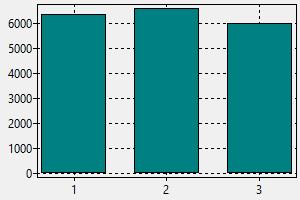

The base salaries for both conventional bus drivers and community shuttle bus drivers are above the 2019 living wage in Metro Vancouver of $19.50 per hour, comprised of wages and non-mandatory benefits. For drivers who take on part-time regular (20 to 30 hours per week) or full-time regular (minimum 35 hours per week) community shuttle positions, they will begin to receive similar benefits as conventional driers.

These drivers can expect a guaranteed 37.5 hours of work per week in various shifts, from early straight shifts (4:30 am to noon), mid-day run shifts (from mid-day to early evening), owl shifts (late evening to early morning), and split shifts (four hours in the morning, break, then four additional hours in the evening).īenefits for operating the smaller and less busy community shuttle buses entail a 14% top-up above the hourly rate in lieu of benefits for those starting as a casual, an employee bus pass, and flexible scheduling. They also have paid vacation, a pension plan, and a bus pass for themselves and a family member. Ceiling of $26.09 per hour after 16 months of employment (equivalent to $54,267 annually)Ĭonventional bus drivers, operating routes that use the larger and busier 40-ft-long and 60-ft-long buses, also receive a number of benefits including medical, dental, and vision, with the option of family and domestic partner coverage.$23.48 per hour for the second eight-month period (equivalent to $48,838 annually).$20.87 per hour for the first eight-month period (equivalent to $43,410 annually).Starting at $19.62 during a 10-day training period.Ceiling of $32.61 per hour after 24 months of employment (equivalent to $67,829 annually).$29.35 per hour for the third eight-month period (equivalent to $61,048 annually).$26.09 per hour for the second eight-month period (equivalent to $54,267 annually).$24.46 per hour for the first eight-month period (equivalent to $50,877 annually).Starting at $22.83 per hour during 30-day training period.Overall systemwide transit ridership soared by 18% between 20, and overcrowding on bus trips specifically went up by 36% during the same period.Īs of February 2019, this is how much bus drivers earned before tax: Unifor states its members have not had a contract since the end of March, and CMBC indicates it has been working to renew its agreement with the union since the start of AugustĪ key issue for the union centres on wages and benefits, in the backdrop of an increasingly stressful and demanding work environment as a result of “a serious understaffing issue” and overcrowding. “The company’s lack of movement leaves us little choice but to set a strike deadline.” “Unifor’s bargaining committees are prepared to stay at the table all week to reach a deal,” said Gavin McGarrigle, Unifor Western Regional Director and lead negotiator, in a statement. A full-blown strike resulting in a complete shutdown of conventional bus, community shuttle bus, and SeaBus services is not expected at this time. The exact form of the job action has yet to be determined, but the union says it could range between a work-to-rule or rolling strike action. This was a follow up to an October 10 vote when 99% of union members voted for job action. Unifor provided TransLink and transit riders yesterday with a 72-hour strike notice, after negotiations broke down between both parties. TransLink named the best public transit system in North America.80% of TransLink buses now travelling slower than 5 years ago: report.TransLink bus drivers and SeaBus workers issue 72-hour strike notice.If TransLink’s Coast Mountain Bus Company (CMBC) and the union representing bus and SeaBus workers are unable to come back to the table with an agreement by Thursday night, Metro Vancouver transit riders could be inconvenienced by job action as early as Friday morning.


 0 kommentar(er)
0 kommentar(er)
